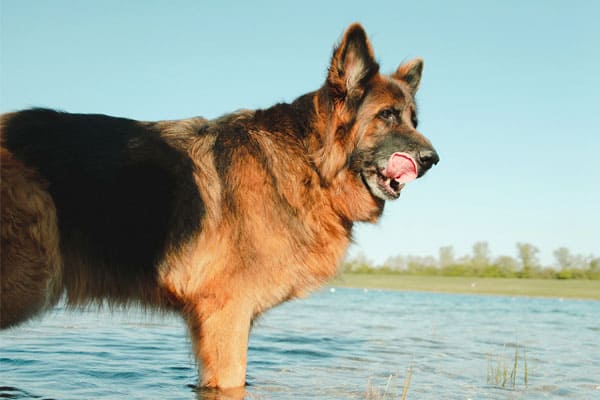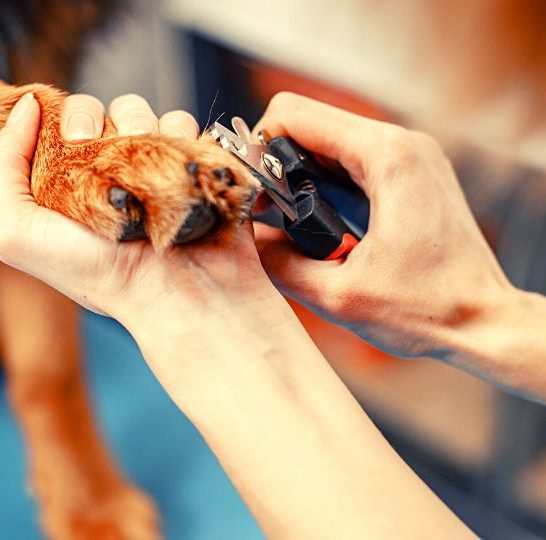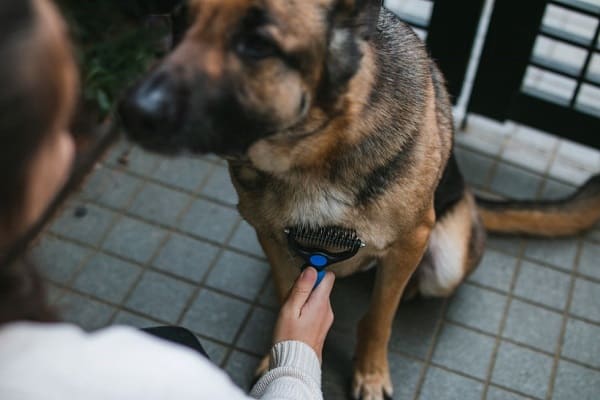7 Best Antibacterial and Antifungal Dog Shampoo
Caring for your furry companion involves more than cuddles and treats. Every choice contributes to your dog’s well-being. This includes nourishing meals and soothing baths. Dogs are susceptible to various infections, particularly bacterial and fungal. You should consider this when selecting grooming products.
Navigating the plethora of dog shampoos available can be a daunting task. Cost, ingredients, and efficacy are vital factors. They help you make the right choice for your four-legged friend. In this guide, we delve into timeless aspects. We focus on selecting the best antibacterial and antifungal dog shampoos.
Here, we present a curated list of top picks. We explore the essential features that set each product apart. Join us in unraveling the secrets to a happy, healthy pup. Whether you’re a seasoned pet parent or new to dog care, you’re welcome. Discover the ideal solutions for your canine companion below.
IN A HURRY? HERE ARE OUR TOP PICKS…
| Rank | Image | Title | Buy |
|---|---|---|---|
| Best Overall |  | VetMD Medicated Shampoos and Sprays for All Dogs | Check Price on Amazon |
| Runner-Up |  | Pet MD - Medicated Shampoo for Dogs | Check Price on Amazon |
| Best Value For Money |  | Veterinary Formula Clinical Care Antiseptic and Antifungal Shampoo for Dogs | Check Price on Amazon |
Get them quick! Here are our top picks for antibacterial and antifungal dog shampoos we have found.
Check them out below.
Top Pick: VetMD Medicated Dog Shampoo

Our ultimate choice for canine care is the VetMD Medicated Shampoo for dogs. What sets it apart is its commitment to your pet’s well-being. This shampoo boasts a formula free from harsh chemicals, artificial colors, and parabens.
This also ensures a gentle yet effective solution. Veterinarians recommend it because it is pH-balanced. It’s reliable for addressing bacterial and fungal infections.
All-natural, high-quality ingredients make VetMD. It’s a go-to for promoting skin health. Notably, it caters to dogs with sensitive skin. It excludes dyes and fragrances from its composition.
VetMD Medicated Shampoo is effective, affordable, and versatile. That’s why it’s at the top of our recommendations. This trusted, carefully formulated product treats your furry friend to the best.
- RELIEVES BACTERIAL AND FUNGAL INFECTIONS — Shampoo for dogs with sensitive skin helps relieve bacterial and fungal infections on the skin while gently cleansing and moisturizing, softening your pets coat
- ALL-NATURAL INGREDIENTS — Made with the highest quality all-natural ingredients
- USE WHILE GROOMING — Use this shampoo as part of the grooming process. For best results, leave shampoo on pet for five minutes before rinsing well
- IDEAL FOR ALL DOGS WITH SENSITIVE SKIN — Medicated shampoo is free of all fragrances and dyes for sensitive skin
- 100% SAFE — Veterinarian recommended dog shampoo contains no artificial colors, no harsh chemicals, is paraben-free, and pH balanced for dogs. The cruelty-free formula is safe for use with your pets topical flea and tick treatme
Runner-Up: Unleash the Healing Magic with Pet MD Medicated Shampoo!

Right on the heels of our top pick is the Pet MD Medicated Shampoo, ready to dazzle pet owners with its versatile healing prowess. This isn’t just your ordinary shampoo; it’s a multipurpose elixir designed for dogs, cats, and even majestic horses.
Picture this: your furry companions are basking in the refreshing lather of Pet MD Medicated Shampoo, and you’re about to discover why it’s our coveted runner-up!
Why Pet MD Rocks:
Pet MD isn’t playing games regarding safeguarding your pets’ well-being. Infused with the dynamic duo of Chlorhexidine and Ketoconazole, this shampoo kicks it up a notch by delivering potent antibacterial and antifungal properties. It’s like a spa day for your pets but with medicinal benefits!
One of the stars of Pet MD’s show is its remarkable versatility. Whether you have a furry doggo, a graceful feline friend, or a majestic equine companion, this shampoo is your go-to solution. No need for a multitude of different shampoos; Pet MD simplifies your pet care routine.
While it may be the runner-up, Pet MD Medicated Shampoo is far from being in anyone’s shadow. It’s a superstar, boasting a powerful formula that caters to a spectrum of needs.
- Medicated Shampoo for the Topical Management of Skin Problems, Skin Infections, and Dermatitis.
- Helps Relieve Skin Infections and Skin Conditions Like Hot Spots, Acne, as well as Superficial Cuts, Abrasions, and Insect Bites.
- Useful for the Cleansing of Face Folds, Finger Folds, as Well as Underarm and Groin. Astringent Qualities Also Help to Dry the Affected Area.
- Helps Eliminate the Major Causes Most Commonly Associated with Skin Infections in Dogs and Cats.
- Made in the USA in Federally Regulated Manufacturing Facilities to Ensure Quality and Safe
Best Value for Money

Veterinary Formula Clinical Care antiseptic and antifungal medicated shampoo is the best value for your money.
It is scientifically formulated to relieve bacterial and yeast infections with ketoconazole and benzethonium.
This shampoo relieves redness and itching fast with its active ingredients.
It is pH balanced to leave your pet with healthy skin without parabens or soap.
The affordable price and effective ingredients put this shampoo the best value for your money.
It is what your pet needs for its skin problems!
- TREATS SKIN INFECTIONS – Veterinary Formula Clinical Care Antiseptic and Antifungal Medicated Shampoo for pets is scientifically formulated with benzethonium chloride (antibacterial) and ketoconazole (antifungal) to relieve bacterial & yeast infections.
- FAST ACTING – This cat/dog shampoo helps relieve symptoms including redness, malodorous discharge from lesions, itchiness, pustules, hair loss, greasiness and scaly skin caused by wounds, endocrine diseases, allergies, short coats, skin folds or ringworm.
- VETERINARY RECOMMENDED – This shampoo for dogs/cats is pH balanced for your pet and paraben and soap-free. It will not remove topical spot-on flea and tick treatments and has been proven to safely treat Bacterial Pyoderma and allergic/fungal dermatitis.
- FOR DOGS AND CATS – Medicated antiseptic and antifungal shampoo is for use on both dogs and cats over 12 weeks of age. Use twice weekly until skin conditions clear up, then once a week to prevent flare-ups.
- EFFECTIVE & AFFORDABLE – Veterinary Formula Clinical Care premium medicated products are created with veterinary-grade ingredients, available at an affordable price. We know dogs and cats are more than just pets because we are pet parents too.
- Age range description: Adolesc
Curaseb Medicated Shampoo

There are other good antibacterial and antifungal medicated dog shampoos on the market.
Curaseb medicated shampoo is veterinary-strength pet shampoo medicated with ketoconazole and chlorhexidine.
These ingredients provide relief for irritated, itchy skin. The ingredients are antibacterial, antifungal, and anti-yeast.
The powerful ingredients will take care of skin irritants, while aloe and vitamin E will south and nourish rashes, dry skin, and redness.
- Helps Relieve Skin Infections, Hot Spots, Paw Licking, Allergies, Growths & Acne in Dogs, Puppies, Cats, Kittens and Horses
- Medicated Shampoo Relieves Itching and Scratching; Aloe & Vitamin E, Soothes and Nourishes Rashes, Redness and Dry Skin Irritations
- Deodorizes and Cleanses Smelly Body, Face Folds, Wrinkles, Paws, Underarms and Groin Leaving a Pleasant Cucumber Melon Scent
- Veterinary Strength Medicated Formula is for Dogs, Cats and Horses
- Made in the USA in Federally Regulated Manufacturing Facility in Small Batches for Quality and Saf
4Legger Organic Dog Shampoo

Dive into the lap of nature with 4Legger Organic Dog Shampoo, your gateway to a natural grooming experience for your beloved pet. USDA-certified organic, this shampoo is a symphony of aloe vera, lemongrass, and coconut oil – a trio crafted to soothe and heal itchy skin.
At the heart of 4Legger lies a commitment to organic purity. Aloe vera, lemongrass, and coconut oil create a holistic remedy for your pet’s skin. But the show’s star is lemongrass, armed with its inherent antibacterial and antifungal properties.
Nature’s Cure for Irritations:
Harnessing the power of lemongrass, this shampoo becomes a natural antidote for skin irritations. Bid farewell to artificial solutions; 4Legger seizes the potential of lemongrass to deliver an all-natural panacea for your pet’s skin afflictions.
Pure Bliss, No Nasties:
Unlike mainstream antibacterial and antifungal dog shampoos, 4Legger celebrates cleanliness without compromise. Say goodbye to petrochemicals, detergents, and other unwelcome additives. This shampoo is a testament to purity, ensuring that only the most natural ingredients touch your pet’s skin.
A Haven for Sensitive Skin:
Tailored for dogs with sensitive skin, 4Legger is more than a shampoo – it promises relief. Infused with organic ingredients, it becomes a balm, offering respite from the itch that can plague your furry friend.
- NATURAL INGREDIENTS THAT MAKE SENSE: 4Legger USDA certified organic dog shampoo is a true, natural dog shampoo handcrafted in small batches using real plants, not synthetic chemicals. A concentrated dog coconut shampoo with soothing aloe vera and lemongrass essential oil ensures your pup gets clean the right way, without detergents, petrochemicals, or other harmful ingredients commonly found in other dog shampoo. 4-Legger is safe for dogs, cats, and you!
- GREAT FOR ITCH RELIEF AND SENSITIVE SKIN: The perfect itchy skin dog shampoo, 4Legger organic lemongrass & aloe dog shampoo with organic oils to help with flaky or dry skin and dandruff. A dog skin soother through lemongrass to make hair and fur naturally healthier. We don’t use artificial thickeners, which means your dog will have a naturally soft and shiny coat with our organic dog wash.
- THE CHOICE FOR ECO-CONSCIOUS PET PARENTS: 4Legger dog shampoo is made from sustainably sourced, natural ingredients. Our goal is to help our furry family members live longer lives through natural products. Validated through the National Organic Program and backed by our Wagging Tail Promise. Concentrated - a little dog shampoo for smelly dogs goes a long way to get rid of that wet dog smell!
- MAKE THE SWITCH TO A TRUE ORGANIC DOG SHAMPOO: Only 2% of dog shampoos are certified organic. Synthetic shampoo can build up on a dog’s fur, whereas a natural gentle dog shampoo like 4Legger leaves your pup’s coat shiny and clean. Like a dog whitening shampoo, 4Legger also brightens whites and adds shine to color without any synthetic ingredients. All natural small dog shampoo and large dog shampoo!
- TRUSTED, AWARD WINNING PRODUCTS: Since 2015, pet parents, holistic vets, and natural groomers have trusted 4Legger dog shampoo. 4Legger products have won the EcoExcellence Award for Best Grooming Product 3 times, and have received the USDA Certification from the National Organic Program. Our holistic shampoo for dogs uses vegan ingredients and is cruelty free. Whether you’re looking for dog shampoo for smelly dogs or dog shampoo for sensitive skin, 4Legger is the way to
DERMagic Shampoo Ba for Healthy Dog Skin

Meet the DERMagic Shampoo Bar – a simple and natural choice for keeping your dog’s skin in top shape.
This shampoo bar taps into essential oils’ antibacterial and antifungal wonders, such as spearmint and lemongrass. These natural ingredients work together to heal your dog’s skin irritations gently.
Enhanced Performance:
This skin rescue bar kicks things up with added sulfur and neem oil. These ingredients boost the bar’s effectiveness in promoting healthy skin for your furry friend.
Gentle Exfoliation:
Diatomaceous earth, a key component, provides a gentle exfoliation for your dog’s skin, offering relief from irritations. Plus, it’s safe for all pets and children, ensuring worry-free use.
Switching to a bar form means less waste compared to traditional liquid shampoos. It’s a convenient, eco-friendly solution that minimizes spills and prevents overuse.
Bid farewell to spills and the hassle of traditional shampoos. The DERMagic Shampoo Bar brings simplicity and effectiveness in one compact package.
- Solid formula deodorizes and soothes skin with an antimicrobial blend of diatomaceous earth and essential oils
- Calms irritated skin and gently cleanses with no toxins, preservatives, chemicals, sulfates or irritants make it perfect for pets that are prone to skin allergies or irritations, and is safe to use anytime your pal needs a bath
- Saves money and time since it eliminates spills and messes, and lathers up as fast as it rinses awaySaves money and time since it eliminates spills and messes, and lathers up as fast as it rinses away
- Handmade in the USA with certified organic ingredients and contains no preservatives, nor sulfates, nor harsh chemicals, providing the perfect first step to restoring your pets skin to good health
- Ingredients: Coconut Oil, Olive Oil, Castor Oil, Jojoba Oil, Sunflower Oil, Rice Bran Oil, Neem Oil, Vitamin E, Lemongrass Essential Oil, Spearmint Essential Oil, Sulfur, A
TropiClean OxyMed Medicated Shampoo for Dog’s Itchy Woes

Ranked at #7, the TropiClean OxyMed Medicated Shampoo is your go-to solution for quick relief from itching, hot spots, and more.
This shampoo is designed to swiftly tackle scaling, flaking, hot spots, and eczema, giving your dog the relief they need.
With a unique blend of oatmeal, vitamins, and minerals, this shampoo nourishes your dog’s skin, promoting overall health.
Formulated without harsh chemicals, this shampoo is safe for dogs with sensitive skin, ensuring a gentle yet effective cleansing experience.
Pair this medicated shampoo with OxyMed’s 3-step system for the best results. Start with the shampoo, follow up with an ultra-soothing anti-itch oatmeal treatment, and finish with a spot treatment anti-itch soothing spray. Your dog will thank you with itch-free, happy skin!
Made in the USA, this 20oz Oatmeal Medicated Dog Shampoo is a reliable choice for allergies and itching. Put an end to the itchiness fast with TropiClean OxyMed.
- FAST ACTING RELIEF - Oxymeds cat & dog anti itch shampoo is formulated to help with dandruff, scaling, flaking, eczema, hot spots.
- DEFEND & RESTORE - Our oatmeal pet shampoo is a blend of vitamins and aloe that nourish the skin and provide itch relief for dogs & cats.
- RELIEF MADE EASY - Relief in three steps. Use our cat and dog oatmeal shampoo and conditioner with our spray for max results.
- MINDFULLY MADE - Our vet recommended cat & dog wash is made in the USA with effective ingredients for a good clean without the harsh chemicals
- Oxymed - For total care use with Oxymed’s ear cleaner, soothing lotion, tear stain remover and wip
Buyer’s Guide: Picking the Right Antifungal Dog Shampoo

Choosing the perfect antifungal shampoo for your furry friend might seem overwhelming with the multitude of options out there. How do you know which one suits your dog best? Should you go for a medicated shampoo or something more natural? Continue reading for a breakdown of what to consider when selecting an antifungal and antibacterial dog shampoo.
Fungal Infections:
Fungal dermatitis is a common woe among dogs, marked by symptoms like intense itching, ear infections, and flaky or crusty skin—particularly in skin folds, nails, armpits, and the anal region. Treating fungal dermatitis often involves antibiotics or topical solutions like shampoos and ointments.
Medicated Ingredients:

Most medicated antibacterial and antifungal dog shampoos contain key ingredients like ketoconazole and chlorhexidine gluconate. Chlorhexidine gluconate prevents bacteria from sticking to the skin by enhancing cell wall permeability, effectively breaking down the walls.
It’s effective against Gram-negative and Gram-positive bacteria and various fungi, including yeasts. Ketoconazole combats fungi and yeast by creating holes in the cell membrane, causing cell contents to leak and effectively eliminating the infection.
Natural Alternatives:
Several natural ingredients boast antibacterial and antifungal properties, such as lemongrass—an essential oil in natural antibacterial dog shampoos. Lemongrass is a potent alternative with antibacterial properties that target candida and staphylococcus.
Additional Beneficial Ingredients:
When looking for the right dog shampoo, consider aloe vera, oatmeal, ceramides, and shea butter. Combined with active ingredients, these elements combat infections and soothe, moisturize, and relieve your dog’s itchy skin.
Steer Clear of Harmful Chemicals:

While seeking beneficial ingredients, be wary of the harmful ones commonly found in dog shampoos. Avoid parabens, formaldehyde, propylene glycol, cocamidopropyl betaine, ammonium, and sodium benzoate. These substances can pose serious health risks to your furry friend.
Vet’s Recommendation vs. Other Brands:
We’ve got you covered if you’re torn between your vet’s recommendation and exploring other brands. Our guide will assist you in pinpointing the best antifungal and antibacterial dog shampoo—one that harmonizes with your dog’s skin, proves effective and doesn’t break the bank. Keep reading to make an informed decision for your beloved pet.
How To Choose the Right Antibacterial Shampoo for Dogs?
As the dog’s owner, it is your job to pick the products used on them.
You want high-quality dog products to increase your dog’s lifespan and quality of life.
Check out the ways to choose the right antibacterial shampoo for dogs below.
What Ingredients Should Not Be in an Antifungal Dog Shampoo?
While some great products are on the market for treating your dogs’ skin infections, many companies take shortcuts and add toxic ingredients to their shampoo.
These ingredients cause harm to your dog.
Check out the list of common toxic ingredients found in dog shampoo.
- Triclosan
- Petrochemicals
- Phenoxyethanol
- Synthetic dyes
- GMOs
- Silicones
- Mineral oils
- Sulfates
- Synthetic fragrances
- PEG and PPG
- Phthalates
- Parabens
- Formaldehyde
- Isopropyl alcohol
- Cocamide MEA
- Ethanolamine compounds
If you see any of these ingredients in your dog’s shampoo, you want to get a new shampoo.
You want to avoid these ingredients because they are toxic to dogs.
Look for natural colors and fragrances.
Know Your Dog’s Allergies
Every dog is different. One shampoo may work wonders for your neighbor’s dog but make your dog break out. Just like humans, dogs benefit best from products made for them.
Allergy tests can be done to know what your dog is allergic to.
If you do not want to spend the money on a test, pay close attention to how your dog reacts to certain shampoos.
This concept can be used when choosing dog food, too. If your dog seems to have more skin issues or stomach issues after changing its food, they are most likely allergic to something in the food.
Many skin irritations in dogs start with their food, so ensure you get high-quality food to decrease the possibility of a food allergy. Use this same concept when choosing a dog shampoo. Pay attention to the way your dog reacts to the shampoo you choose.
If they break out or become more irritated, try a different shampoo with active ingredients.
Beneficial Ingredients
There are a lot of bad ingredients in dog shampoo, but there are some great ones, too.
Some ingredients to look for when choosing your dog shampoo include aloe vera, oatmeal, and shea butter.
All of these ingredients are soothing for the dogs’ skin. Active ingredients like ketoconazole and chlorhexidine gluconate will kill or inhibit the bacteria and fungus, while the rest should soothe the skin.
Also, natural ingredients like lemongrass essential oil are a great natural alternative for treating infections.
Is Anti-Fungal Shampoo Safe for Dogs?
Yes, antifungal shampoo is safe for dogs.
Antifungal shampoos should be used on dogs suffering from fungal skin infections.
These shampoos can help treat and soothe dogs so they no longer suffer.
How Fast Does Antifungal Shampoo Help Yeast on a Dog?
Antifungal shampoo must contact the dogs’ skin for at least five to ten minutes to be effective.
Repeat baths every three to five days for two to twelve weeks. You don’t want to stop using your antifungal shampoo too soon.
If you stop using the medicated shampoo, the least susceptible fungi that survived the first round will continue reproducing, resulting in an even stronger fungus colony on your dog’s skin.
How Often Should Dogs Be Bathed With Antifungal Shampoo?
If your dog has a fungal infection, they should be bathed weekly with an antifungal shampoo.
You do not want to stop using your antifungal shampoo too soon.
Ensure your dog’s fungal infection is gone before stopping their weekly baths.
Fungal infections can take weeks to clear up. But once the infection is cleared up, how often you should bathe your dog with regular shampoo will depend on several factors, including their coat type.
For example, dogs with thick double-layer coats, like German Shepherds, should only be bathed every 4-5 months.
Bathing these dogs too frequently will increase the risk of damaging the protective oils on their coats.
This will lead to an increased risk of developing a skin infection. That is why it’s so important to pay attention to your dog’s breed characteristics to choose the best solution for their long-term health.
What Conditions Can and Can’t an Antifungal Dog Shampoo Help?
Antifungal shampoo is a great way to combat many fungal infections in dogs.
However, antifungal shampoo cannot cure everything.
Antifungal shampoo is great for treating infections like fungal dermatitis and ringworm.
These are common fungal infections that medicated antifungal dog shampoo can treat.
Aspergillus is a mold fungus commonly found in the environment. If this fungus gets on your dog and causes irritation, the antifungal shampoo will not help. This fungus resists fluconazole, a drug commonly used to treat molds and other fungi.
Does Antifungal Waterless “Dry” Shampoo Work?
There are mixed feelings about waterless antifungal shampoo. While it can help reduce fungal infections, these shampoos do not work as well, as regular shampoo needs water to work the best.
How Does Antifungal Dog Shampoo Work?
Antifungal dog shampoos are packed with antifungal ingredients that either kill or prevent the reproduction of fungus on your dog’s skin and coat.
Some medications cause holes in the cell wall of the fungus. These holes either let essential components of the fungus fall out of the cell or allow surrounding cells to invade the fungus cell.
Both of these situations cause the fungus to die. As the fungus dies, the dogs’ skin becomes more healthy.
Thus, soothing ingredients like aloe vera and oatmeal come to the rescue to help moisturize and heal the abrasions on the dog.
Can Dogs Get Fungal Infections?
Yes, dogs can get fungal infections. Fungal infections affect both the interior and exterior of the dog. Skin fungal infections that affect dogs include dermatitis and ringworm.
Interior fungal infections that affect dogs include blastomycosis and cryptococcosis. Interior infections cannot be treated with an antifungal shampoo.
How Do You Treat Fungal Infections in Dogs?
Fungal infections in dogs can be treated in multiple ways. Topical treatments include medicated mousse and medicated antifungal shampoos. For internal fungal infections, drugs are ingested to treat the fungal infection.
Does Antibacterial Shampoo Work on Dogs?
Yes, antibacterial shampoo does work on dogs. It must be used frequently to clear up the fungal infection.
When To Use Antibacterial Shampoos for Dogs?
Antibacterial shampoo should be used on dogs when they suffer from bacterial infections, like hot spots or staph infections.
What Can I Bathe My Dog With for a Yeast Infection?
Bathe your dog in medicated antifungal shampoo to clear up yeast infection.
Conclusion
In conclusion, selecting the right antibacterial and antifungal dog shampoo is crucial for maintaining the skin health of your furry companion. The variety of options available, each with unique benefits, ensures you can find the perfect fit for your dog’s needs.
Whether opting for natural alternatives or medicated solutions, prioritizing ingredients, avoiding harmful chemicals, and considering your dog’s individual sensitivities are essential steps. The comprehensive list of the seven best shampoos provides a valuable guide to help you make an informed decision, ensuring your loyal friend enjoys a clean, healthy, and itch-free coat.




















